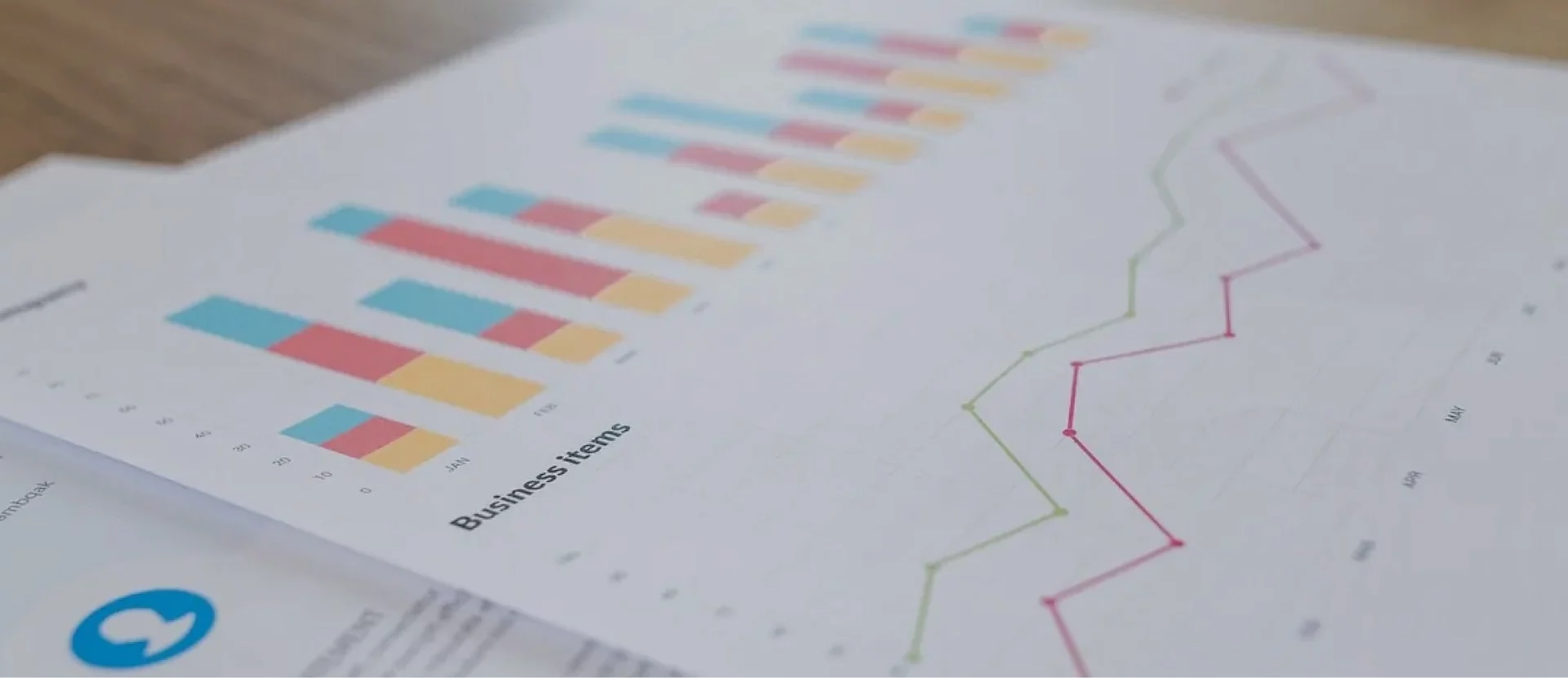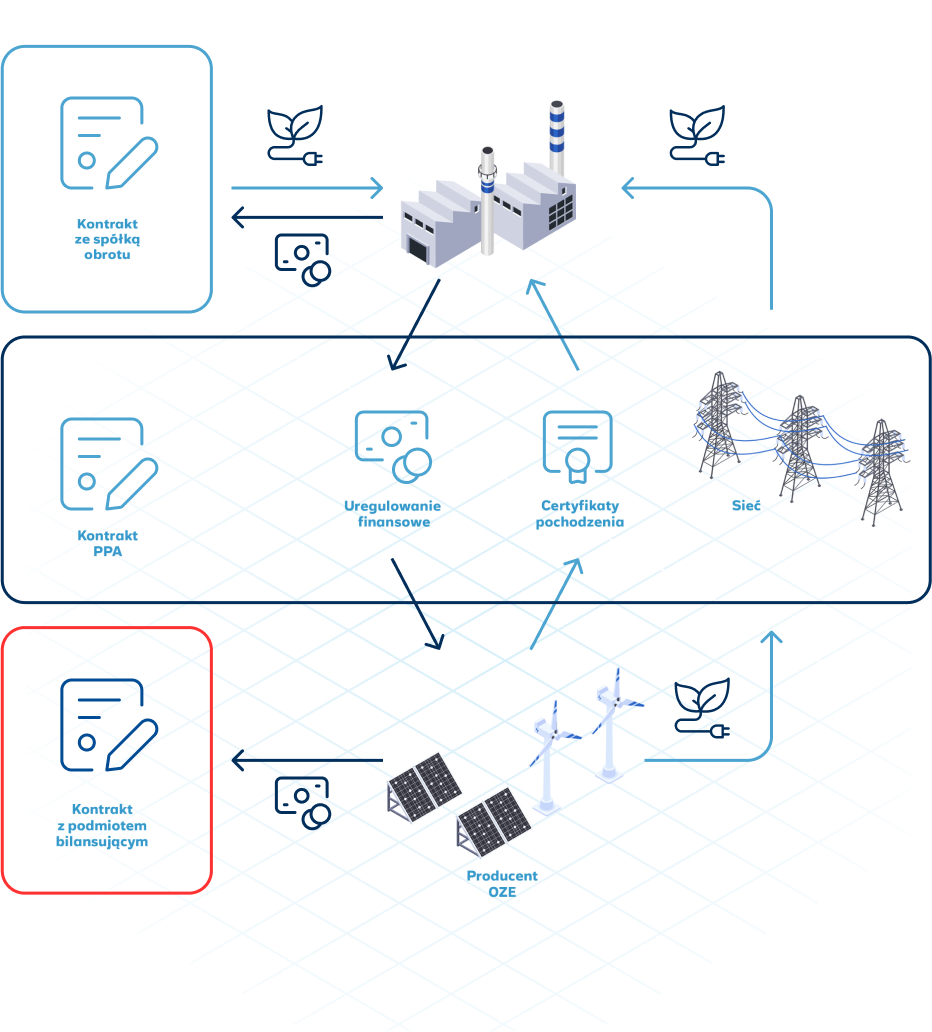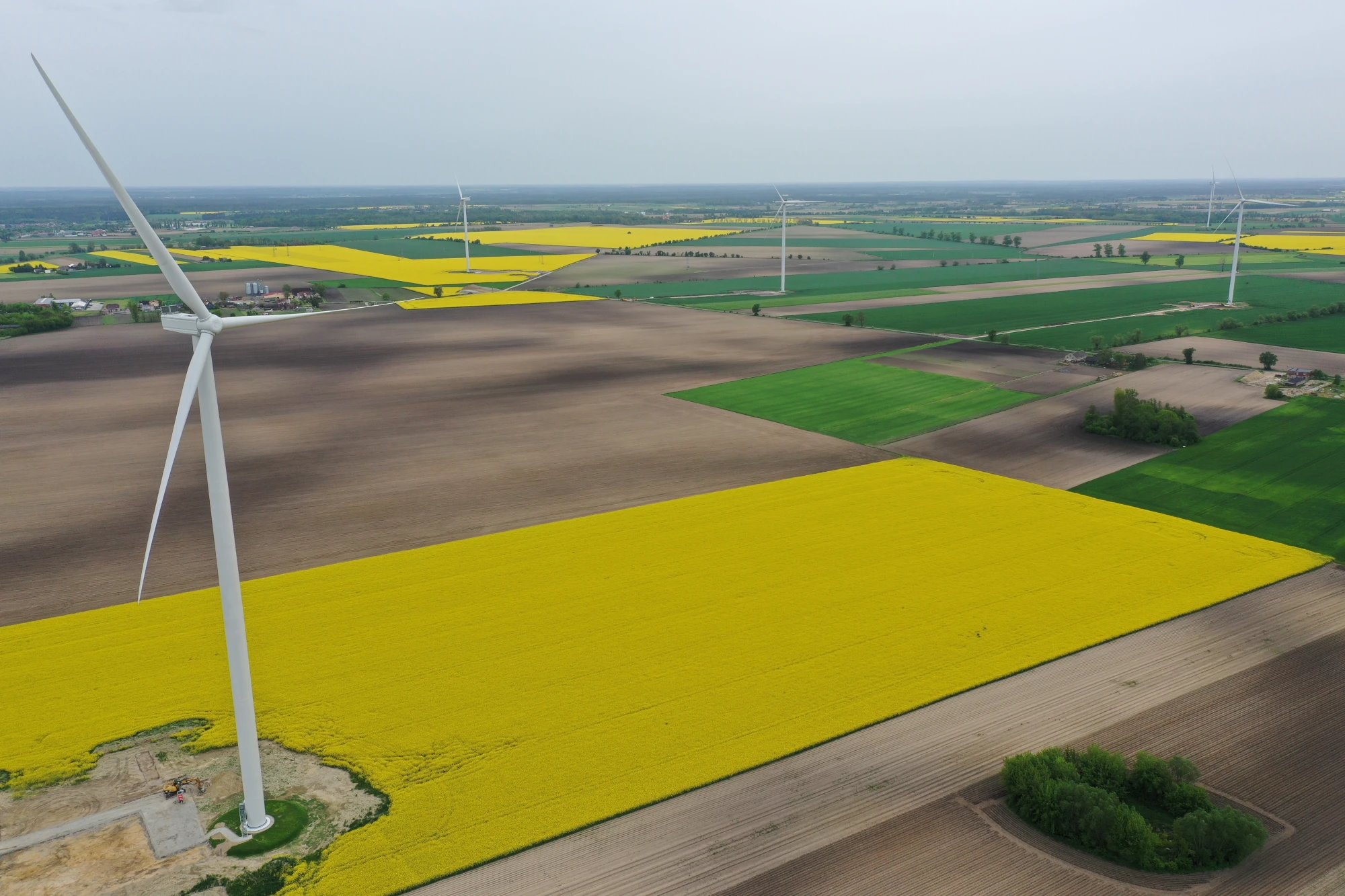
Development of Green Power Generation, i.e., energy from renewable energy sources (RES)
The electricity market is evolving, and one of the ongoing changes is the dynamic development of so-called green generation capacities, i.e., energy sourced from renewable sources (RES). Among electricity consumers, there is growing awareness of the environmental impact of their operations. As a result, they are increasingly seeking opportunities to enter into agreements for the supply of green energy. This helps reduce their carbon footprint while lowering and stabilizing business operation costs. One of the solutions ensuring price stability is Power Purchase Agreements (PPA).

What is a PPA (Power Purchase Agreement)?
A PPA (Power Purchase Agreement) is a long-term contract for the supply of electricity between two parties: the producer and the consumer of electricity. Typically, the electricity sold comes from renewable energy sources (RES). Under this agreement, the producer commits to delivering a specified amount of energy within an agreed timeframe and from a specific source, while the consumer agrees to purchase and pay for the energy at previously agreed prices.

PPA Mechanism

PPA agreements vary depending on the specifics of the market.

 pl
pl 



